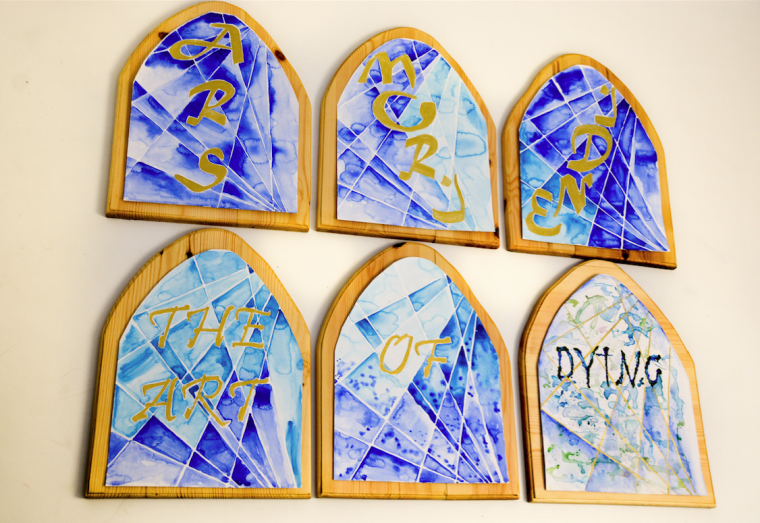Christian perspectives on dying in the 21st century: Launching a digital resource
To die well is to die a Christian death, according to the medieval writings of the Ars Moriendi (the Art of Dying). But what does it mean to die well today, in the 21st century? Churches play a central role in funeral rituals and in providing comfort for the dying or those left behind – but often have engaged less in questions about the decisions that may be faced at the end of life, particularly in relation to advancement in medical technologies.

Next month, Monday October 16, sees the launch of a major new digital resource to support discussion about end-of-life decision-making. The resource includes a series of talks, alongside music and artwork, to encourage debate about the theological, ethical, social, clinical and legal context that faces us all, as individuals, members of families, communities and congregations – or as clergy.
The resource builds on six ecumenical conferences held across England and Wales over the past year which brought together over two dozen speakers and invited input from several hundred participants to explore 'Christian Perspectives on Death and Dying'.
The conferences were funded by York charity The Paristamen CIO. One key theme was the impact of medical technologies on enhancing the ability of medics to extend life, sometimes with a great diminishment of 'quality' of life. Intensive care specialists, GPs and palliative care consultants sketched out some of the clinical issues and clergy reflected on the spiritual challenges around the questions these raised. Key dilemmas included how to make decisions for people who have lost the capacity to make decisions for themselves when the potential benefits and burdens of a medical intervention may be very finely balanced.
A second theme explored in the conferences focused on how individuals can make decisions for themselves in advance, should they lose the capacity to make medical decisions for themselves in the future. Representatives from charities providing information and support in planning ahead for end-of-life care explained how to record one's wishes in advance in 'advance decisions' ('living wills') and how to appoint a trusted friend or relative with Lasting Powers of Attorney for health and welfare.
Each conference concluded with a debate about assisted dying, with a wide range of speakers bringing different Christian perspectives to bear on the theological and social/political implications of changing the law.
Alongside such debates the initiative included a discussion of 'Have we lost the art of dying?' with Rev Dr John Lampard, author of Go forth Christian Soul: A biography of a Prayer. The project was accompanied by a concert, My Spirit Sang All Day: a musical celebration of life, death and the after, and an art exhibition including specially commissioned works by Pamela Dowling and a performance of a shadow puppet play by Play of Light Theatre.
The six events were hugely powerful, as much for what the participants bought to each discussion as what was said from the podium. Audiences asked questions about the sanctity of life, the difference between 'God's time' and our own and the appropriateness of medical interventions in different circumstances. They reflected on the place of God in a good death and went on personal journeys reflecting on what they might want for themselves, the connection between their faith and the perspectives they held on these key areas. Many who attended highlighted the need for the types of conversations held during the conferences to be had with others, in groups and within congregations.
One key aim of the project was to develop a capacity for discussion of such issues and to support further conversations within the Christian community. That's where the online resource comes in. Within the website to be launched in October are recorded talks, short films, learning materials and links to other relevant resources.
Join us for the free launch event at Euston, Friends House, London on the evening of Monday, October 16, 2017 (6pm – 8.30pm) where we will outline some of the key issues explored by the project, introduce the resource, and explain how to use it. There will also be a chance for networking and conversation.
End of Life decision-making is a crucial concern in contemporary medicine and society. Christian communities have a key role to play in the exploration of these concerns, both for themselves and the wider community.
Register for your free place on Eventbrite
Dr Julie Latchem is Project co-ordinator.











